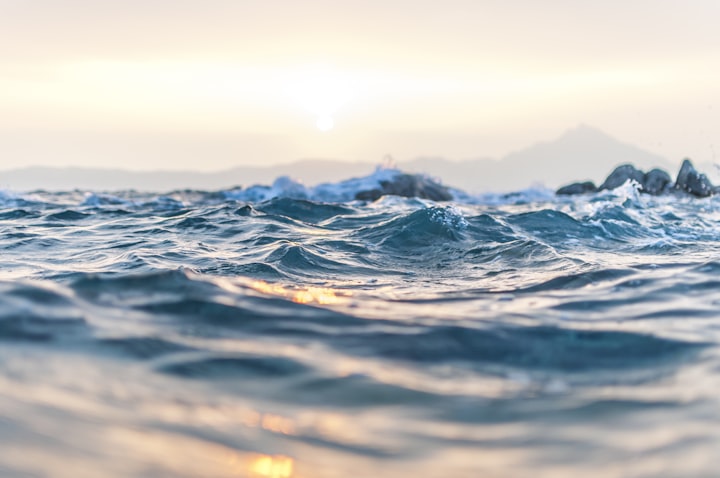
However, in blind taste tests, people are unable to distinguish between bottled water and tap water and in some cases choose tap water. Like chlorine, some consumers find it annoying and choose to filter the water or buy bottled water. If you are concerned about water quality, you can always buy a water filter to purify the water from your tap.
On the other hand, almost no one will filter the water from a plastic bottle, making you think that the required water is clean. If you choose water that does not contain toxic chemicals, it is best to stick to a tap. In some cases, public tap water may be more secure because it is more likely to be tested. In addition, bottled water is more likely to be contaminated by microscopic particles than tap water. However, groundwater can have high levels of contamination or contamination during bottling and/or cleaning.
If your tap water source is public, you can check your annual water quality report or contact your water supplier to find a source. Mineral water: Groundwater naturally contains soluble solvents such as minerals, salts, and gases. Mineral water can also be processed. Natural mineral water and spring water are bottled on-site and are not subject to any treatment other than the introduction of carbon dioxide. This means that in most cases, the water you drink will not contain common pollutants such as pesticides, microorganisms, chemicals, and heavy metals.
Therefore, the choice of tap or bottle is primarily a personal matter. The US EPA monitors tap water quality, and the US Food and Drug Administration is responsible for ensuring the safe and accurate labeling of bottled water for sale nationwide. Although the EPA is responsible for setting standards for tap water, not all pollutants are regulated by the Environmental Working Group (EWG). Health Canada believes all bottled water meets FDA standards "compared to health and safety standards" and says that water sold in Canada is generally of low quality and not harmful to health.
All drinking water, either bottled or tap water, can contain small amounts of contaminants. Tap water is much safer to drink than bottled water because of stricter safety rules and standards. However, artificial water, well, and well still need to meet FDA water quality standards and can be filtered or disinfected (either by reversing osmosis or using ultraviolet light instead of chlorine) to make them safer to drink. The finished liquid product is then packaged in a sealed bottle under hygienic conditions and sold to the consumer.
To solve this problem, people can carry a reusable tap water bottle and fill it with drinking water in public places as needed. Aside from the different costs, one of the reasons why people prefer tap water over tap water may be that it may be easier to carry a water bottle on the street, especially if you do not have one. '' This is a click to visit. ... Impact on Environmental Research has shown that refilling related water, cooling, and transportation processes, as well as the treatment of plastic bottles after use, will create more serious environmental impacts, than tap water. Many studies also focus on the safety of bottled water, especially the transport of chemical substances from plastic containers to water, as well as microplastic and bacterial contamination.
Concerns have also been raised about the possible leak of antimony trioxide, which is suspected to be the carcinogen used in the production of polyethylene terephthalate plastic (also known as PET or PETE) used in water bottles, but Health Canada and other studies have shown levels. found in bottled water does. not to be harmful to health. Bisphenol A, a composite compound found in other plastics, is not a problem for PET water bottles. Many companies that sell bottled tap water say that their product tastes better than tap water.
All in all, however, it seems that drinking the best tap water in the environment carries fewer health risks and tastes like bottled water, especially after filtering. However, while experts acknowledge that water conservation is important, they also warn that misleading ideas about store-bought items are healthier or cleaner than tap water. Recent reports of drugs in drinking water may prompt some people to go to a bottled water channel at a nearby grocery store, but for the most part in Canada, choosing bottled tap water is a matter of taste or luxury, not health.
Drinking water - tap, filtered, or bottled - is essential for providing healthy water and plays an important role in people's lives. Sharing Safely on Pinterest Drinking tap water may be better for the environment than drinking bottled water. According to the Centers for Disease Control and Prevention (CDC), drinking water in the United States is one of the safest places in the world.
But in the United States, where tap water is legally regulated and usually tested for hazardous contaminants, the average person consumes an average of 21 liters (79 liters) of bottled water per person per year, according to Columbia Water. Columbia University Earth Institute Center in New York. York. While some Americans have access to tap water, others pay for bottled water, costing $ 100 billion a year. Bottled Water Cost and Luxury is estimated to cost about 2,000 times more than tap water, and a liter of bottled water is about three times the national average of one liter of water, milk.
Many bottled water companies claim that their water comes from a fresh, clean, or clean pool, but it is estimated that about 25 percent or more of bottled water will be tap water. In a bottle that can sink or not come out





Comments
There are no comments for this story
Be the first to respond and start the conversation.